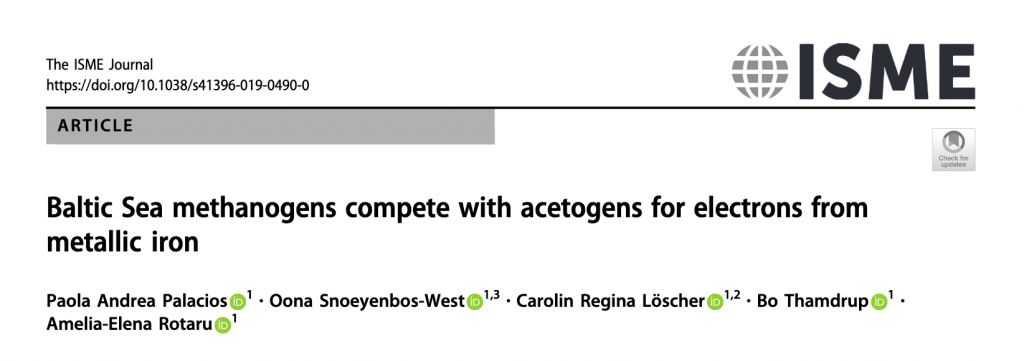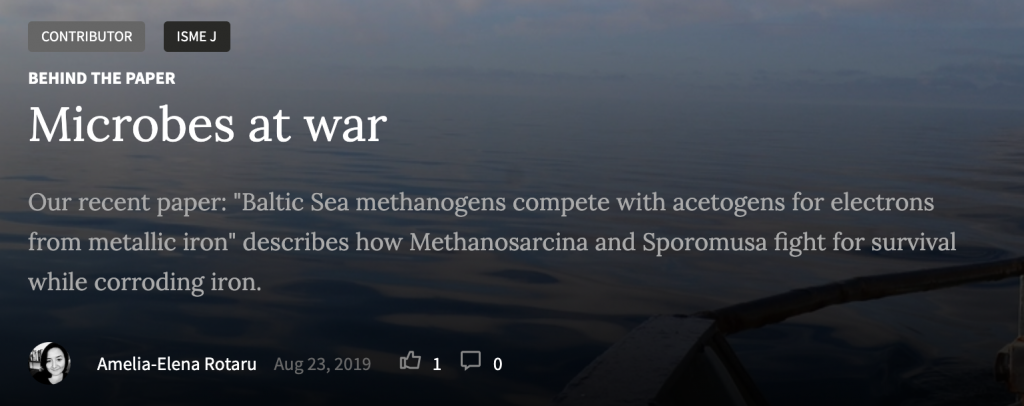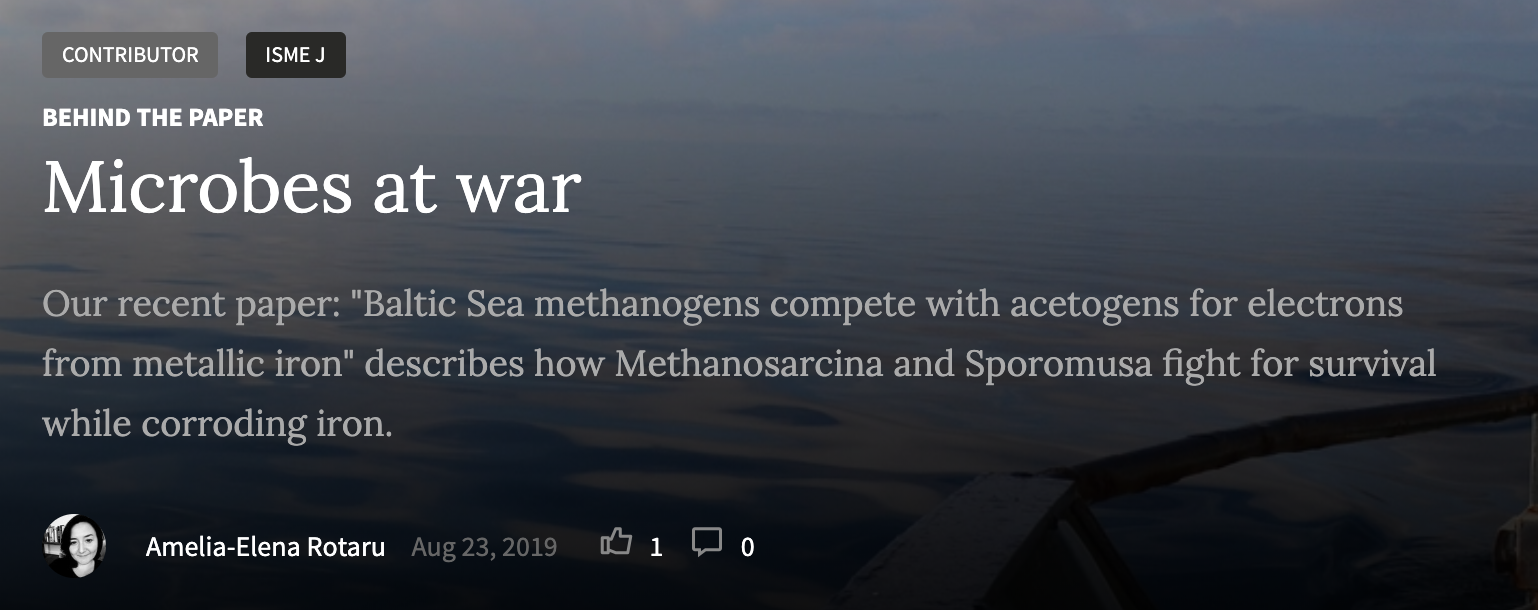Paola’s first paper has been now published in The ISME Journal. Here is a link to the paper.

Additionally, I was invited to write a blog about the paper for the Nature Microbiology community with the story behind the paper.


Paola’s first paper has been now published in The ISME Journal. Here is a link to the paper.

Additionally, I was invited to write a blog about the paper for the Nature Microbiology community with the story behind the paper.

On May 23rd, we were very happy to host Florin Musat from the Helmholtz Center for Environmental Research, who gave a great talk about Candidatus Argoarchaeum ethanivorans. Not only did we hear a fantastic overview of his latest Nature paper on this topic, but we also got exciting insights about unpublished and upcoming work in his lab on this very exciting topic. What a treat!
Read Florin’s blog @nature with details behind the paper, you’ll also find some amazing images of these unusual microorganisms.
Paola Palacios is now a freshly minted Ph.D., and my 1st graduate student getting a doctorate.
She did a great job at her defense in front of a large audience, and a committee formed by Prof. Ronnie Glud (SDU, DK), Assistant Professor Jo Philips (AU, DK) and Senior Scientist Florin Musat (UFZ, DE).
Congratulations Dr. Paola!
Paola is continuing as a postdoc. She is getting some of the Ph.D. manuscripts ready for publication and preparing a grant application. We wish you lots of success now and for the future!
Mon’s first 1st author paper just got accepted in a special Frontiers topic: “Biological Methanation or (Bio/Syn)-Gas Upgrading” by Frontiers in Energy Research. We are really to see this paper soon in print. The paper is the first test of electroactivity in Methanosarcina species.
|
doi: 10.3389/fenrg.2019.00029
|
Moreover, the work is part of a collaborative grant with AU-Engineering, A/Prof. Lars Ottosen. The final goal is to apply the electric properties of microorganisms (e.g. Methanosarcina) in real life scale biogas-upgrading dígesters like that in Foulum (see below).